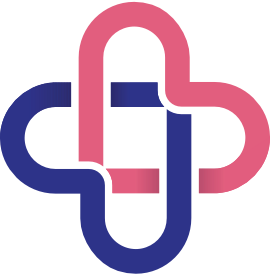Key Takeaways
What is Ozempic?

Ozempic has proven to be so effective in helping with weight management that its manufacturer was unable to keep up with demand and pharmacies and insurers encouraged its use be restricted solely to the treatment of diabetes.
It's a prescription medication classified as a glucagon-like peptide-1 (GLP-1) receptor agonist. It works by stimulating the release of insulin and reducing the production of glucagon, both of which help to lower blood sugar levels in individuals with type 2 diabetes. Ozempic is typically administered once a week via subcutaneous injection.
In addition to its role in managing blood sugar levels, Ozempic has been found to have other beneficial effects on the body most notably with weight loss. This is because GLP-1 receptor agonists like Ozempic can suppress appetite and increase feelings of fullness, leading to reduced calorie intake.
Furthermore, Ozempic has been shown to have a positive impact on cardiovascular health. Clinical trials have demonstrated that it can reduce the risk of major adverse cardiovascular events, such as heart attack and stroke. This makes Ozempic a valuable treatment option for those with both diabetes or obesity and cardiovascular concerns.
When it comes to the administration of Ozempic, it is important to note that it is typically given as a once-weekly injection. This convenience factor is highly appreciated by individuals with diabetes who may already have a complex medication regimen. The injection is relatively simple and can be self-administered at home, following proper instructions from a healthcare professional.
It is worth mentioning that like any medication, Ozempic may have potential side effects. Common initial side effects include nausea, diarrhea, and vomiting. These symptoms are usually mild and tend to improve and disappear over time as the body adjusts to the medication. However, it is important to consult with a healthcare professional if these side effects persist or worsen.
Why Might Someone Stop Taking Ozempic?

There can be various reasons why someone might consider discontinuing Ozempic. These include:
Lack of efficacy: Despite the medication's effectiveness for many individuals, it may not produce the desired blood sugar control or weight loss in some cases. There are hundreds and genes and dozens of hormones involved in weight regulation. Until we have testing to help identify which genes and hormones a person has, and in turn, which treatments might suit them best, all we can do is a trial and error type approach. This means that for some, ozempic is likely to be extremely impactful, whereas for others it may not make much of a difference.This may prompt individuals to explore alternative treatment options under the guidance of their healthcare provider.
Adverse side effects: Like any medication, Ozempic can cause side effects. While not everyone experiences them, if the side effects become bothersome or intolerable, it may prompt individuals to discuss other treatment options with their healthcare provider.
Cost: Ozempic may not be covered by certain insurance plans, or the out-of-pocket expenses may become burdensome. This may lead individuals to seek alternative medications or treatments that are more affordable.
Pregnancy or plans to conceive: The recommendation is to discontinue ozempic prior to conception. If planning to conceive talk to your healthcare professional about how many months prior to starting you should discontinue and of course if you discover you’re pregnant and you’re taking the medication still, you should stop immediately.
Withdrawal Symptoms: The Main Focus
When stopping the use of Ozempic, or any anti-obesity medication, it’s important to be aware that over the course of the weeks following its discontinuation, a person’s hunger, cravings, and appetite will slowly return to those that they experience prior to starting the medication. In turn, over time, this will lead many people to regain their lost weight over time. As these drugs tend to amplify the body’s own fullness queues – queues which themselves are influenced by a person’s pattern of eating – working with a registered dietitian may help to decrease post Ozempic cessation hunger, cravings, and change in fullness. Your registered dietitian is likely to work with you to help determine what frequency of meals and snacks helps you most with fullness as well as explore your distribution of proteins, fats, and carbohydrates to help with same.
Prevention and Transitioning Off Ozempic Safely

Rather than stopping the medication suddenly, it may be wise to consider a gradual taper so as to have a frame of reference in terms of the impact different dosages might have on a person’s hunger, cravings, and fullness and also to potential side effects. By reducing the medication slowly not only will you be able to pay attention to the impact different dosages of the medication has on you, you may also find that lower dosages lead you to fewer side effects while maintaining benefits to your hunger levels, craving levels, and fullness levels. This would be especially true if reduction is accompanied by working with an dietitian who understands dietary patterns and behavioral strategies that enhance fullness.




.webp)